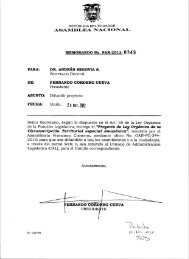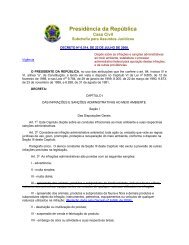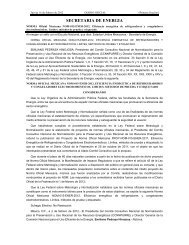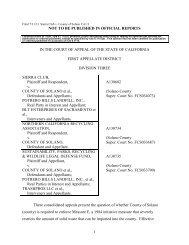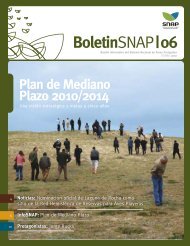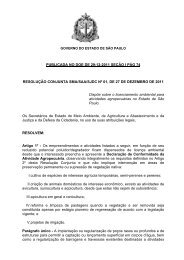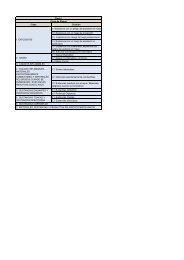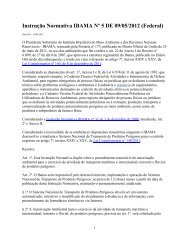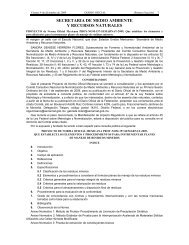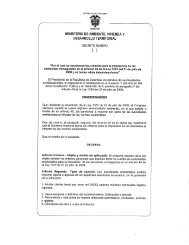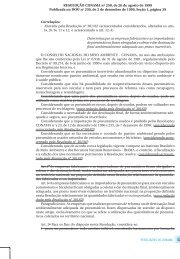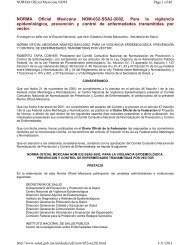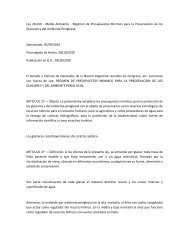OceAn science OceAn science OceAn science
OceAn science OceAn science OceAn science
OceAn science OceAn science OceAn science
You also want an ePaper? Increase the reach of your titles
YUMPU automatically turns print PDFs into web optimized ePapers that Google loves.
Research to Operations<br />
Translating research capabilities to operational status is a critical concern for the ocean<br />
community, but its associated issues apply to <strong>science</strong> and industry across the board. Close<br />
collaboration with private sector partners and identification of operational requirements is<br />
key to the success of transitioning research. Additionally, successful transitions will build<br />
on the tools and mechanisms of partnering (including with other research sectors outside<br />
of the ocean community), translation, and workforce development, outlined above.<br />
Ocean Education<br />
A variety of efforts exist to promote and support ocean education. Some entities connect<br />
ocean scientists with educators (e.g., Centers for Ocean Sciences Education Excellence).<br />
Others excel at introducing ocean-related concepts to the public (e.g., National Estuarine<br />
Research Reserve System), while still others focus on community-based outreach. The<br />
academic community is responsible for preparing a workforce with the interdisciplinary<br />
capabilities and intercommunity knowledge required to address the ocean research<br />
priorities. Coordination of education efforts at the local, state, and federal levels is key to<br />
establishing an ocean-literate nation.<br />
Understanding how ocean <strong>science</strong> research and resource management communities<br />
can best contribute to improving formal education necessitates working in concert with<br />
the Academic Competitiveness Council, a federal group tasked to develop an inventory<br />
of federally funded <strong>science</strong>, technology, engineering, and mathematic (STEM)<br />
education programs and evaluate the effectiveness of these programs. The Interagency<br />
Working Group on Ocean Education, an entity under the auspices of the JSOST and<br />
SIMOR, provides the ideal forum in which to enhance ocean education in conjunction<br />
with broader national STEM efforts. These activities will also provide the foundation for<br />
a coordinated effort to develop and promote a comprehensive education message about<br />
the ocean and its role in the Earth system, and to enable the use of ocean-observing data<br />
for management and educational purposes. Such an effort would also help ensure that<br />
education-related translation efforts are more effective, that existing ocean <strong>science</strong> education<br />
networks and their ties to regional collaborations are strengthened, and that these<br />
individual activities are coordinated.<br />
Developing the intellectual capital to pursue the research priorities requires an assessment<br />
of the current technological and scientific (natural and social <strong>science</strong>s) workforce to<br />
understand gaps, surpluses, and critical skills. This baseline assessment will help identify<br />
areas that need to be developed or enhanced to provide the necessary workforce, and provide<br />
guidance to universities and other educational institutions about how best to prepare<br />
students for current and future workforce demands. Efforts to develop and expand the<br />
ocean <strong>science</strong> workforce include expanding opportunities for obtaining graduate degrees<br />
and interdisciplinary training, including experience-based (“hands-on’) learning opportunities,<br />
developing professional certification programs, and creating competitive incentives<br />
to develop and establish training programs.<br />
71



